Top 6 Questions to Ask the Hiring Manager in Your Next Tech Job Interview
Approaching a tech job interview can be intimidating, especially in a competitive market where every detail counts. One of the most effective ways to stand out is to ask the hiring manager smart questions that show your genuine interest in the role and the company. But what questions should you ask in an interview to make a positive impression and gather the information you need to make an informed decision?
Let’s explore 6 essential questions to ask.
1. Can you describe the company’s culture and values?
Employees who resonate with their company’s culture are more likely to be engaged, productive, and loyal. It’s alarming that 47% of candidates are rejected because they lack a clear understanding of the job and the company. This emphasizes the importance of being well-informed about your potential employer.
During a job interview, asking a hiring manager about the company culture and values can provide a better sense of team dynamics, management style, and whether your personal values align with the organization’s. Are teams collaborative or independent? Is the management hands-on or laissez-faire? Also include a few questions about the company’s mission, how the company has evolved, and where the department is heading to make a positive impression. Understanding these aspects can help determine if the work environment will be conducive to your success and happiness.
2. What are the key challenges the team is currently facing?
Every team has unique challenges, whether meeting tight deadlines, overcoming technical hurdles, or managing resource constraints. Understanding these can provide a clear picture of the role’s immediate demands and necessary skills. Asking the hiring manager about the biggest challenges shows your proactive thinking and willingness to contribute to the team’s success from day one. It demonstrates your interest in problem-solving, career growth, and team support.
This proactive approach can set you apart from other candidates and helps build rapport. By understanding the main responsibilities and the department’s direction, you position yourself as the ideal candidate, ready to handle whatever presents itself as the most challenging part of the current position and ensure a good work-life balance.
3. How does the company support professional growth and development?
Career advancement opportunities are a significant factor for job seekers. Knowing that a company supports professional growth can be a deciding factor in accepting a job offer. Companies that invest in employee growth retain top talent and foster motivation.
A survey shows that 70% of employees would leave for a company that supports development. Asking for real-world examples of career growth within the company can provide valuable insights into how the organization supports its employees’ growth. These examples can highlight the potential career paths available and the timeframes for advancement. It also shows that the company values its employees and is willing to invest in their long-term success.
4. What does success look like in this role?
Understanding what success looks like in a role is crucial for aligning your goals with the company’s expectations. When considering questions to ask the hiring manager, inquire about specific performance metrics and indicators of success. Understanding success in the role allows you to set realistic goals that align with the company’s mission.
During the conversation, ask interview questions about short-term and long-term success indicators. Short-term indicators might include meeting project deadlines, while long-term indicators could involve career progression. Thoughtful questions such as “What does success look like in this role?” and “What are the most challenging parts of this position?” provide insights into the work environment and the company’s future. These insights help you plan your career trajectory within the company’s future.
5. How does the team handle work-life balance?
It’s important to consider how a company supports work-life balance when evaluating job opportunities. It’s worth looking into the company’s remote work and flexible hours policies and their approach to time off. These factors can greatly impact how well the job fits your needs. A good work-life balance is essential for avoiding burnout and increasing job satisfaction, leading to better employee retention. Ask about the team’s approach to work-life balance, typical day routines, and team culture.
Inquire how your future boss and direct reports support balance and well-being. Real-life examples can offer a better sense of the company’s commitment. These insights help you understand the job description and decide if the company aligns with your personal and professional goals.
6. What are the next steps in the interview process?
By asking about the next steps in an interview, you demonstrate eagerness and preparedness. You also gain clarity on the timeline and expectations for follow-up, ensuring you stay engaged and proactive. This question shows your keen interest and commitment to the role, setting you apart from other candidates. It helps build rapport with the hiring manager and leaves a positive impression.
Knowing the timeline and expectations for follow-up helps you plan effectively for the next or more interviews if necessary. It allows you to manage your expectations, stay informed about the application process, measure success, and reduce anxiety. Understanding this can also provide insights into the role’s main responsibilities and interactions with other departments, preparing you for potential future steps in your career journey.
The Power of Insightful Questions
Finding your way through a tech job interview involves more than showcasing skills—it’s about understanding the company’s culture, challenges, and growth opportunities. Asking about the company’s core values aligns your ethos with the work culture, ensuring a harmonious fit. Questions to ask hiring managers about the typical career path, performance review process, and professional development opportunities highlight your ambition. Inquiring about the team’s biggest strengths and most challenging parts shows your problem-solving mindset. Understanding the hiring process and company culture and asking specific questions during job interviews help you prepare questions, make an informed decision, and leave a great impression. Ready to ask the right questions for your future?






